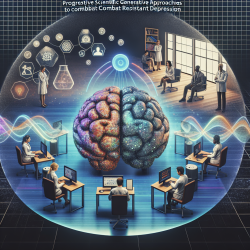Introduction: The New Era of Speech Therapy
In recent years, the landscape of speech therapy has been transformed by technological advancements, leading to the rise of speech therapy telepractice. This innovative approach, often referred to as virtual therapy, is gaining traction in educational settings, offering a viable solution to meet the diverse needs of students. For Special Education Directors, understanding the benefits and implementation of telepractice is crucial to fostering improved student outcomes.
Data-Driven Benefits of Virtual Therapy
One of the most compelling aspects of speech therapy telepractice is its ability to deliver data-driven results. Research indicates that virtual therapy is as effective as traditional in-person sessions, with the added benefits of flexibility and accessibility. A study published in the Journal of Speech, Language, and Hearing Research found that students participating in telepractice showed significant improvements in speech and language skills comparable to those receiving face-to-face therapy.
Accessibility and Flexibility
Telepractice eliminates geographical barriers, providing students in remote or underserved areas access to quality speech therapy services. This flexibility ensures that all students, regardless of location, can receive consistent and effective support. Additionally, virtual therapy can be scheduled around a student’s academic and extracurricular commitments, reducing disruptions to their daily routine.
Cost-Effectiveness and Resource Allocation
Implementing telepractice can also lead to cost savings for schools. By reducing the need for travel and physical space, resources can be reallocated to enhance other areas of student support. Moreover, virtual therapy platforms often include built-in tools for tracking progress and managing sessions, streamlining administrative tasks for educators and therapists alike.
Building Stronger Collaborations
Telepractice facilitates stronger collaboration between therapists, educators, and families. With virtual platforms, progress can be easily shared, and stakeholders can communicate more effectively, ensuring that everyone involved in a child's education is aligned on goals and strategies. This collaborative approach is instrumental in creating a supportive environment that nurtures student success.
Conclusion: Inspiring Change
As Special Education Directors, embracing speech therapy telepractice can inspire significant improvements in student outcomes. By leveraging data-driven insights and fostering collaboration, virtual therapy offers a pathway to more personalized and effective educational experiences. The future of speech therapy is digital, and it is an exciting time to be part of this transformative journey.










